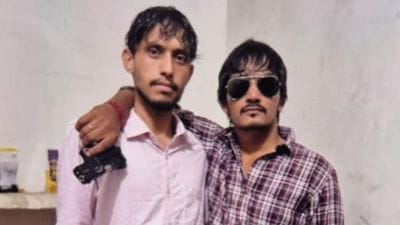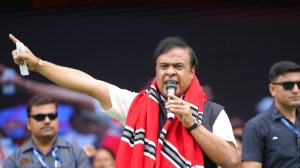NC suspends Deuba over election call
Nepal was thrown into further turmoil on Thursday after the ruling Nepali Congress party said it had suspended Prime Minister Sher Bahadur D...

Nepal was thrown into further turmoil on Thursday after the ruling Nepali Congress party said it had suspended Prime Minister Sher Bahadur Deuba, upset by his move to dissolve parliament and call early elections.
A constitutional expert said Deuba would be able to continue as acting Prime Minister of the Himalayan kingdom, at least until the November 13 elections.
Just a day earlier Deuba had been pressing forward with plans to extend emergency rule beyond Friday to try to put down a six-year Maoist insurgency that has killed more than 4,000 people.
But growing political objections to the idea within his own Nepali Congress party and from the Opposition prompted him to ask King Gyanendra late on Wednesday to disband Parliament and call fresh elections — two years ahead of schedule.
‘‘We have suspended Sher Bahadur Deuba and he is to give an explanation within three days why he dissolved Parliament and called for fresh elections,’’ Basant Kumar Gautam, chief secretary of the Nepali Congress Party, said.
Adding to the political upheaval, three Cabinet ministers quit the government in response to a call by Nepali Congress party President Girija Prasad Koirala, who Deuba had replaced as Prime Minister last July.
‘‘The party president has asked ministers to resign from the Cabinet,’’ a party spokesman said.
At the centre of the political changes is the government’s use of emergency rule, first imposed last November when the Maoists walked out of peace talks. The rebels, battling to overthrow the constitutional monarchy and install a one-party communist republic, launched a series of deadly raids and the government responded with emergency measures giving the Army sweeping powers.
Until then, Nepal’s ill-equipped police force had been fighting the rebels.
About 2,000 rebels, civilians and troops have died in rebel-related violence since November. Deuba’s suspension follows complaints by some members of the Nepali Congress party that they had not been consulted about plans to extend emergency rule.
Opposition parties argued a new anti-terrorism law meant emergency measures were not necessary. ‘‘The suspension does not effect the Prime Minister’s ability to carry out all his duties as per the Constitution,’’ said Nepal constitutional expert Ganesh Raj Sharma.
‘‘Whatever the internal policy of ruling party is, it does not effect his position as caretaker Prime Minister till the next elections.’’ Deuba, who had been expected to make a televised address to explain his move to dissolve Parliament, was not immediately available to comment.
Nepal has had 11 governments since it adopted a multi-party democracy in 1990.
Deuba came to power on a pledge to seek an end to the revolt by the Maoists. But since the break down of peace talks last year, the violence has escalated. The political manoeuvring follows a tumultuous year for Nepal. (Reuters)
Photos


- 01
- 02
- 03
- 04
- 05




























